Table of Contents
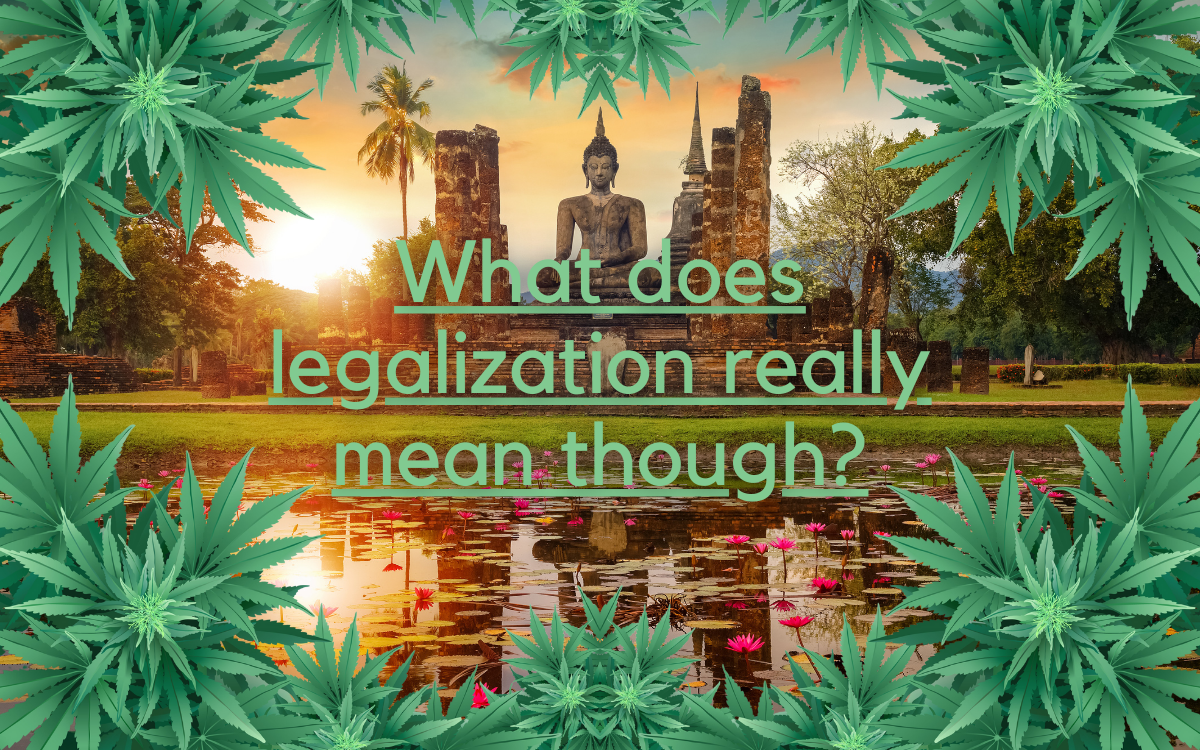
If you’ve heard that cannabis is now fully legal in Thailand, you’re sort of right, sort of wrong.
Yes, it’s true that Thailand has become the first Asian country to officially decriminalize the sacred herb and allow residents to grow and sell their own cannabis products, primarily for medical needs. The country previously allowed the sale of medical cannabis in 2018.
This latest move makes it easier and safer for customers seeking health and wellness remedies to legally acquire and possess cannabis, as well as for restaurants to put it in food and drinks without facing any legal risks.
But it’s also true that you are not allowed to light up anywhere or anytime you want: public smoking can lead to a fine of 25,000 Thai baht, about $780 USD, and/or up to three months in jail. Non-medical use is also discouraged.
Extracted products like oil available for sale also can’t contain more than 0.2 percent of THC, the main natural compound that causes temporary physical and mental changes when smoked or eaten. So, this means people seeking legendary high-potency Thai sticks and other ganja products, at least legally, may be disappointed.
Government officials have made it clear that the country’s reversal of previous strict cannabis laws is more for health and commerce reasons, and they require that anyone who wants to grow and sell their own products legally – up to six plants per person — must register for a permit.
Patients are also encouraged to go to licensed clinics to acquire their cannabis.
Public Health Minister Anutin Charnvirakul told NPR that the government is initially treading lightly with these new policies, and he prefers that citizens first demonstrate better awareness and cooperation in this new legal marketplace, rather than the country trying to create a regimented, strict approach and levying penalties for those who abuse these new privileges.
Charnvirakul also emphasizes that, if the country performs well with these new changes, it could mean more reforms and permissiveness toward cannabis in the future, such as more laws allowing recreational use. If there are abuses, he said the Public Health Ministry can easily bring back earlier restrictions.
The announcement of decriminalization in June included the info that more than 1 million cannabis seedlings were going to be given away nationwide to residents interested in exploring the benefits of growing the plant for health or financial reasons.
This news was accompanied by the word that more than 4,000 people now in jail for cannabis crimes will be released, and any money and cannabis that was confiscated from them will be returned.
All of this reverses a general push against the plant that has been in place to some degree for nearly a century.
The country has good natural growing conditions for the plant, and many believe it was brought from India long ago, where it thrived in the tropical climate. It was used ritually, in food, and for hemp products.
But as part of the international prohibitions led by the U.S. in the 1920s and 1930s, it joined many other countries from around the world in making the exporting of cannabis illegal to countries where the plant is illegal. However, an underground marketplace never quite went away.
Since then, Thailand has generally followed the U.S policies and trade agreements in terms of cracking down on cannabis production and sales.
However, unlike the U.S., which continues to classify cannabis in the same highly dangerous category as heroin and LSD (no accepted medical use and high potential for abuse), Thailand puts the plant in the ‘least serious’ category that includes natural kratom leaves and psychedelic mushrooms.
Still, the U.S. Drug Enforcement Agency maintains active offices in Bangkok and major cities, which it has maintained since the Vietnam War.
For many soldiers in this war, Thailand was a popular place to take leave, and strong cannabis was considered of the country’s luxurious local offerings. Soldiers returning from the war also brought back seeds and plants from some of the stronger Asian strains, which accelerated the country’s underground cannabis activity.
Interestingly, in 2002, the country’s Prime Minister even suggested legalizing cannabis and other less dangerous narcotics, so more resources could be put into combatting more serious threats like methamphetamine and heroin. His proposal failed but still emphasized that cannabis, while acknowledged as illegal, rarely received the full attention of local law enforcement.
In fact, whatever laws say, it remains popular in folk medicine and in recipes. Some restaurants have learned to use parts of the plants that aren’t psychoactive, and hemp remains a useful textile.
With the approval of decriminalization, Thailand joins Canada, Mexico, Georgia and four other countries that permit cannabis to some degree at a national level, although Thai officials stress that medical cannabis must be a prime focus rather than full adult-use/recreational.
Officials hope that by making cannabis more accessible for health-focused consumers, it could lead to an increase in tourism as well as stimulate local agricultural businesses to get involved in a new potentially lucrative commodity.
They envision more visitors to the country – and even Thai tourists — seeking local strains, as well as food fans visiting restaurants and cafes to sample infused cannabis in local cuisine, especially curry dishes.
At the same time, releasing those serving time and not making further arrests could reduce the populations of already-overcrowded prisons.
Since other countries in the region still have strict cannabis laws in place, Thailand’s openness could be a draw for those seeking cannabis – no fear of getting caught, provided you don’t partake in public, and don’t try to take it back home if you live in a country or state where strict laws are in place.
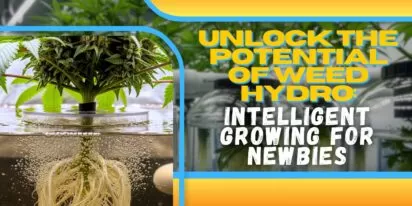
Curious about growing weed in a healthy, effective way? Welcome to the realm of weed hydro! This method uses water instead of soil, delivering n

Peyote Zkittlez is a unique cannabis strain that has quickly gained dedicated followers among enthusiasts and patients alike. Its parentage—Zk
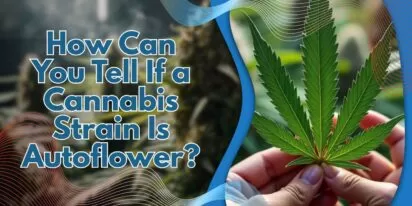
As growers, we want strains that work well, are strong, and are of good quality. Autoflowering cannabis strains are a big step forward for both

Pot growers always ask the same basic question: How much weed does a weed plant produce? The answer is complex and depends on a multitude of var

Ever had the room spin after a few hits? You're not alone. Figuring out how to prevent getting dizzy high can make your cannabis experience a wh
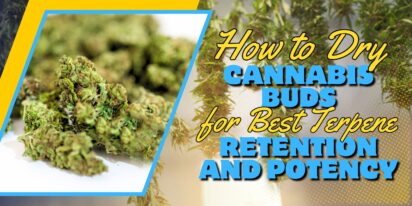
Drying cannabis properly is a critical process in preserving the plant's full aroma and flavor and its psychoactive abilities. Tampering with th

Ever caught yourself a bit too high and all of a sudden in need of being normal? Whether you're heading out for munchies or bumping into someone

Looking for sage advice on how not to get pinched with weed without batting an eye? Attempting to protect your stash from gossipy roommates, sno
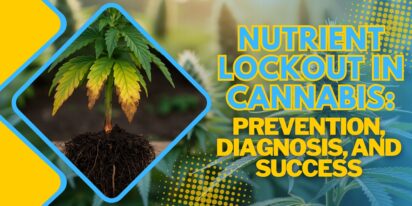
Nutrient lockout, also known as nutrient binding or chemical antagonism, is a significant issue in cannabis cultivation that negatively impacts
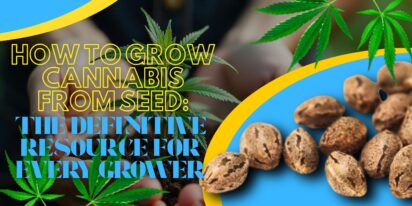
Germination is the most critical initial stage in growing healthy, high-quality cannabis plants. During germination, the dormant seed becomes a
Are You 18 Or Over?
By selecting “Continue”, you confirm that you are at least 18 years of age and legally permitted to access cannabis related content in your region.
By using Rocketseeds.com, you agree to our legal disclaimer.
Excellent blog here Also your website loads up very fast What web host are you using Can I get your affiliate link to your host I wish my web site loaded up as quickly as yours lol
Your writing is not only informative but also incredibly inspiring. You have a knack for sparking curiosity and encouraging critical thinking. Thank you for being such a positive influence!
Simply wish to say your article is as amazing The clearness in your post is just nice and i could assume youre an expert on this subject Well with your permission let me to grab your feed to keep updated with forthcoming post Thanks a million and please carry on the gratifying work
Somebody essentially lend a hand to make significantly articles Id state That is the very first time I frequented your website page and up to now I surprised with the research you made to make this actual submit amazing Wonderful task
Your blog is a beacon of light in the often murky waters of online content. Your thoughtful analysis and insightful commentary never fail to leave a lasting impression. Keep up the amazing work!
Thank you for the auspicious writeup It in fact was a amusement account it Look advanced to more added agreeable from you By the way how could we communicate
Your blog is a constant source of inspiration for me. Your passion for your subject matter shines through in every post, and it’s clear that you genuinely care about making a positive impact on your readers.
Your blog is a constant source of inspiration for me. Your passion for your subject matter is palpable, and it’s clear that you pour your heart and soul into every post. Keep up the incredible work!
Your articles never fail to captivate me. Each one is a testament to your expertise and dedication to your craft. Thank you for sharing your wisdom with the world.
Your blog is a testament to your dedication to your craft. Your commitment to excellence is evident in every aspect of your writing. Thank you for being such a positive influence in the online community.
Your writing has a way of resonating with me on a deep level. I appreciate the honesty and authenticity you bring to every post. Thank you for sharing your journey with us.
Your blog is a true gem in the world of online content. I’m continually impressed by the depth of your research and the clarity of your writing. Thank you for sharing your wisdom with us.
Hi i think that i saw you visited my web site thus i came to Return the favore Im attempting to find things to enhance my siteI suppose its ok to use a few of your ideas
Somebody essentially help to make significantly articles Id state This is the first time I frequented your web page and up to now I surprised with the research you made to make this actual post incredible Fantastic job
Usually I do not read article on blogs however I would like to say that this writeup very compelled me to take a look at and do so Your writing taste has been amazed me Thanks quite nice post
Your blog has quickly become one of my favorites. Your writing is both insightful and thought-provoking, and I always come away from your posts feeling inspired. Keep up the phenomenal work!
Every time I visit your website, I’m greeted with thought-provoking content and impeccable writing. You truly have a gift for articulating complex ideas in a clear and engaging manner.
Hey there You have done a fantastic job I will certainly digg it and personally recommend to my friends Im confident theyll be benefited from this site
I have read some excellent stuff here Definitely value bookmarking for revisiting I wonder how much effort you put to make the sort of excellent informative website
Nice blog here Also your site loads up very fast What host are you using Can I get your affiliate link to your host I wish my site loaded up as quickly as yours lol
What i do not understood is in truth how you are not actually a lot more smartlyliked than you may be now You are very intelligent You realize therefore significantly in the case of this topic produced me individually imagine it from numerous numerous angles Its like men and women dont seem to be fascinated until it is one thing to do with Woman gaga Your own stuffs nice All the time care for it up
Your blog is a beacon of light in the often murky waters of online content. Your thoughtful analysis and insightful commentary never fail to leave a lasting impression. Keep up the amazing work!
Your blog is a breath of fresh air in the often stagnant world of online content. Your thoughtful analysis and insightful commentary never fail to leave a lasting impression. Thank you for sharing your wisdom with us.
Your blog is a beacon of light in the often murky waters of online content. Your thoughtful analysis and insightful commentary never fail to leave a lasting impression. Keep up the amazing work!
Usually I do not read article on blogs however I would like to say that this writeup very compelled me to take a look at and do it Your writing style has been amazed me Thank you very nice article
Your writing has a way of resonating with me on a deep level. I appreciate the honesty and authenticity you bring to every post. Thank you for sharing your journey with us.
This hydroponics guide is quite the buzz, seriously! Who knew growing weed without dirt could be so complicated yet potentially rewarding? The breakdown of systems like DWC and NFT is helpful, though I suspect my cat might confuse the air pump for a toy. The idea of cleaner buds is tempting, especially since explaining hydro weed to my non-growing friends might get messy. And the bit about potential dizziness from hydro weed? Perfect, now I have an excuse for why I always stumble a bit after a grow session. Still, the promise of faster grows and higher yields is hard to ignore, even if it means more trips to the pH meter than to the coffee shop. Overall, a cultivating read for the curious grower!